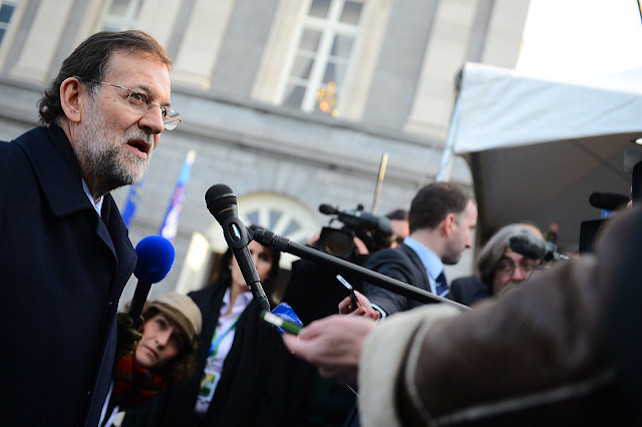The independence referendum was troubled by Spanish police trying to refrain people from voting in the unconstitutional referendum. Hundreds of people were hurt. The unofficial result, with a turnout of around 42%, produced a 90% vote in favour of independence.
The day after the referendum, several banks announced they would move their headquarters out of Catalonia, and the pressure rose on the Catalan president Carles Puigdemont to make a declaration on the future of the region. On 5 October, the constitutional court suspended the regional parliament to avoid it declaring independence.
On Tuesday 10 October, Puigdemont suggested to suspend the declaration of independence to allow for negotiations with Madrid.
“We’re not criminals. We’re not mad. We’re not carrying out a coup … we’re normal people who want to be able to vote and who have been prepared to engage in whatever dialogue was necessary to do so in a mutually agreed way.”
But he added that “nothing has been done to fix a situation that has become unsustainable”.
Rajoy has asked the Catalan government to clarify whether or not it has declared independence, and set a deadline for next Monday 16 October, and a further three days to rectify the situation and restore “constitutional order”. Rajoy said the government would activate article 155 if Puigdemont failed to do so. This article allows the central government to take control of an autonomous region if it “does not fulfil the obligations imposed upon it by the constitution or other laws, or acts in a way that is seriously prejudicial to the general interest of Spain”.
Donald Tusk, the president of the European Council, appealed to both sides at a committee of the regions meeting on Wednesday 10 October:
“A few days ago, I asked Prime Minister Rajoy to look for a solution to the problem without the use of force. To look for dialogue. Because the force of arguments is always better than the argument of force. Today I ask you to respect - in your intentions - the constitutional order and not to announce a decision that would make such a dialogue impossible. Diversity should not, and need not, lead to conflict, whose consequences would obviously be bad: for the Catalans, for Spain and for the whole of Europe. Let us always look for what unites us, and not for what divides us. This is what will decide the future of our continent.”
